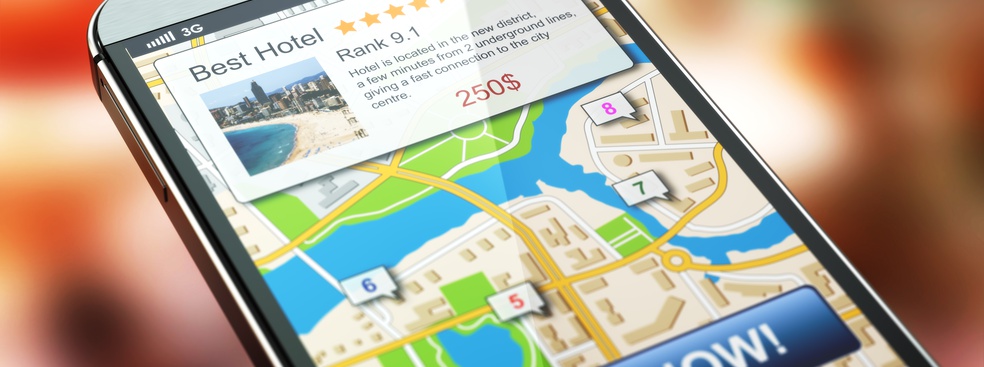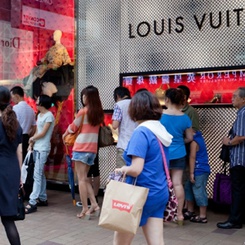Peter O’Connor, Professor of Information Systems and Dean of Academic Programs at ESSEC Business School, author behind the Fundamentals of Hotel Distribution and Revenue Management MOOCs, looks into the current antagonism between hotel brands and OTAs (Online Travel Agencies) to separate fact from fiction.
Traditionally the hotel industry has been composed of three or four major players. Firstly there is the owner, who owns the real estate. Then comes the company which manages the hotel and its activity on a daily basis. The third traditional player is what we call the “brand” – often a franchise which stamps its mark on a multitude of hotel fronts throughout the world, and which is personified by famous groups such the Hilton, Marriott or Holiday Inn.
But today we can also identify a fourth player, which despite its acknowledged contribution is increasingly the subject of much criticism: the online travel agent (OTA), such as Booking.com or Expedia, which consolidates traveler demand and delivers bookings to hotels. In many ways these online travel agencies are in coopetition with hotel brands in the sense that they work for them by facilitating online bookings but at the same time compete with them in the online environment. And in addition they take a margin on each reservation – a margin that doesn’t exist if the customer books via the hotel’s own direct online booking platform.
Large-scale criticism towards online booking sites
Despite the fact that they deliver vast amounts of business for most hotels, brands have been criticizing online booking platforms for quite some time most notably because they claim they are too expensive. Typical commissions for platforms like Booking.com and Expedia are between 17% and 22% per reservation, although the larger the hotel brand, the lower the commission due to economies of scale in contract negotiations.
These hefty fees are in part due to the extremely high costs facing OTA platforms, who to survive are obliged to generate vast amounts of qualified internet traffic. In particular, one of the highest cost items for OTAsis ensuring that they rank very prominently on search engine result pages so that they enter into the consumer’s consideration set whenever they are searching for a travel solution. Whether achieved organically or using paid search engine marketing techniques, achieving this is expensive, with the result that OTAs typically spend the majority of their revenues on marketing and the technology to enable it.
Critics have typically focused on the high commission rates that these sites charge hotels, followed by a second argument that these platforms ultimately add no added value to the issue they tackle (facilitating the sale of hotel nights). However for most hotels, OTAs have become a critical component of their sales mix. The result is an ongoing campaign by several major hotel brands to discredit Booking.com, Expedia and their competitors in the eyes of both owners and consumers and provoke a return to more controlled distribution.
The decoupling of platforms via customer loyalty programs
Currently, the hotel brands’ strategy to loosen themselves from the hold of booking platforms is focused around the implementation of discounts for customers who subscribe to their loyalty programs. For example, if you join the Hilton Honours Club, you immediately benefit from a 10% price reduction on the nights you spend at the hotel, the goal being to create a difference in price between what is offered on the OTA site and the brand’s own direct website. Usually implemented using ‘instant’ sign-up, for the brand this has the double effect of both increasing direct booking statistics and growing loyalty club membership – both metrics that are highly cited in contract negotiations between brands and hotel owners.
However, in reality such transient, undoubtedly price sensitive, customers are unlikely to actually be loyal, meaning that brands are currently artificially inflating their loyalty club figures on the back of discounts ultimately paid for by the hotel property owner!
A not-so-obvious cost equation
Indeed, from the owner’s perspective, recent developments are highly suspect. Simply putting a brand on a hotel property, between royalty fees, incentive fees, marketing contributions and loyalty club fees can easily account for a hefty 10 to 12% of room revenues. If we add to that the 10% reduction resulting from the discount that brands are currently using to incentivize customers to sign up and book, the cost levels of commissions currently paid to OTA platforms – that is, approximately 20% – are easily attained and even surpassed. Meaning that in effect the hotel brands main argument against the OTAs – that they are comparatively more expensive – no longer holds true in this case.
Given current Initiatives to drive direct bookings and their implications, hotel owners need to step back and examine both their distribution and their brand’s real contribution much more deeply. Hotel brands undoubtedly add value, but understanding how much value, and at what cost, is becoming increasingly complex.
Useful links:
- MOOC: The Fundamentals of Hotel Distribution
- MOOC: The Fundamentals of Revenue Management – the Cornerstone of Revenue Strategy
- MOOC: Hôtel “De l'étoile” – a hotel in crisis?
- Using Computers in Hospitality, by Peter O’Connor, Thompson Learning









